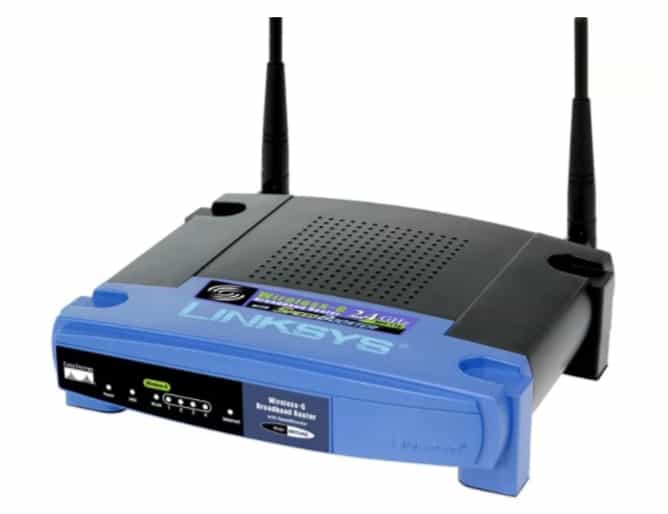
It’s time for my 14th annual “What I want for Christmas” list. Some wishes from Christmases past have come true:
The major credit bureaus — Equifax, TransUnion and Experian — finally, finally, finally have been forced by law to allow consumers to freeze their credit files at no charge. This will help people protect themselves from having accounts fraudulently opened in their name.
More consumers recognize the need to protect their personal information and are more skeptical when companies or callers ask questions.
And more children are finally being taught a little bit of personal finance in school.
But unfortunately, my Christmas wish list is still really, really long this year. I wish:
- All landline and cellphone companies would offer some kind of technology so customers would have the option to block all calls not coming from a live person — almost all robocalls are unwanted marketing calls or attempts to defraud people. The Federal Communications Commission has said robocalls and telemarketing calls are the No. 1 consumer complaint at the FCC.
- People who buy something on sale would realize they’re not “saving money.” Perhaps they’re spending less than they’d planned. But they’re spending money, not saving it. The retail industry has brainwashed us.
- Regulators or Congress would take the next step in this era of rampant identity theft and require the credit bureaus to freeze people’s credit files by default and not have to request their file be frozen. People could choose to unfreeze them temporarily or permanently, but they’d be automatically frozen at the outset.
- Someone would explore the possibility of virtual or one-time use Social Security numbers.
- The nation’s personal savings rate would return to 10 percent, as it was in 2012, when people were still really nervous about the economy. Now, the personal savings rate is about 6 percent. That is, at least, double from a year ago. In May of 1975, it was 17 percent. So 10 percent isn’t too big of an ask.
- Visa and MasterCard didn’t have policies that prohibit retailers from requiring shoppers to show their driver’s license or other official ID. That’s right — it’s prohibited in their agreements. It would help stop a lot of fraud. Not all. But a lot.
- More merchants would install cameras at the checkout line, as Walmart has done at many self-serve checkouts, right next to the item scanner. You can’t avoid looking straight into the camera. The retail giant uses the cameras to deter fraudulent use of credit and debit cards.
- Motorists had to show proof of insurance to renew their auto registration. And people busted for no insurance would have to pay their premium for a whole year upfront to get their licenses back.
- Banks and other financial companies would care more that some people don’t have computers or don’t want to access their accounts online or through their smartphones.
- People weren’t hired as telephone customer-service workers if they can’t be understood.
- All of us would work harder to educate our friends and relatives about not falling for hoaxes like sweepstakes and “work-at-home opportunities” that involve counterfeit checks.
- Consumers would realize that banks aren’t nonprofits. They are companies that need to make more money than they spend. And they have the right to charge some fees — like monthly maintenance fees — as long as they’re clearly disclosed up front. If you don’t like the fees, take your business elsewhere. There are more than 6,000 banks and about the same number of credit unions.
- Equifax, TransUnion and Experian could not add information — good or bad — to someone’s credit file based solely on his or her name and region. Yes, this happens all of the time, even though Social Security numbers don’t match, dates of birth don’t match, actual addresses don’t match, etc. No other matching information besides the name. How is this allowed?
- Regulators and consumer protection folks could figure out how to really crack down on scams, especially ones targeting seniors, and especially ones that come by way of telephone.
- Banks and retailers would take fraud more seriously. If our credit or debit cards are used fraudulently, somebody pays for it. Ultimately, it’s all of us who pay it in the form of higher prices in stores, reduced customer service and higher bank fees and interest rates.
- The credit bureaus provided consumers their genuine FICO credit scores at no charge anytime they receive a free copy of their credit report. The 2003 federal law that forced the three credit bureaus to provide consumers with their credit report at no charge once a year (if they ask) should be amended to include credit scores.
- Consumers weren’t conditioned to believe the commercials that “for everything else, there’s MasterCard.”
- I could be assured that my sons and pre-school-age niece will live in more prosperous times than I.
- Debit cards carried the same federal protection as credit cards. No matter what your bank says, they don’t. Your bank will do anything to convince you that I’m wrong, but I’m not. Most of the “protections” are voluntary, not mandatory. Ask your bank about what debit card protections are mandated by law, compared with the credit card protections mandated by law. The conversation will probably be short.
- Schools would adopt specific requirements for what they teach about personal finance. They all should teach how to budget money, read an apartment lease and other common contracts, understand compound interest and shop for a mortgage.
- Companies weren’t allowed to advertise scams like 10 percent, no-risk investments.
- Teens and adults could count money correctly and make change in their heads. If your bill is $13.51, for example, you should know you can give the cashier $20.01 with the intention of getting $6.50 in change.
- All consumers who are able would pay their bills on time.
- The U.S. government would learn the same lesson that so many consumers have: Debt is expensive. Occasional debt is OK, but you have to live within your means.
- Merchants weren’t continuing to encourage people — even beg people — to open credit card accounts at the checkout register. Target, Amazon and Sears are big offenders.
- There were more honest people in the world.
- Publicly traded companies weren’t allowed to cite “pro forma” results — otherwise known as the profits they would have had if not for unusual expenses. I’d have more money, too, if both my husband’s truck and my SUV hadn’t died within 11 days of each other, if my big, expensive fridge hadn’t failed after only six years, and if I wasn’t required to take two weeks’ worth of unpaid furlough days each year.
- Annuities were better regulated.
- Companies would be more respectful of our privacy, namely by better guarding our sensitive information, home addresses and phone numbers.
- People wouldn’t whine about being broke even though they lease an expensive SUV worth more than my first house, have a smart TV that links to their Apple Watch and iPhone 10 (X), plus have a cigarette habit that costs them $6 a day.
What’s on your wish list?























